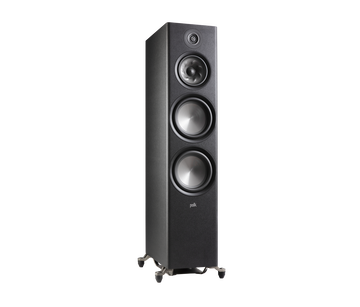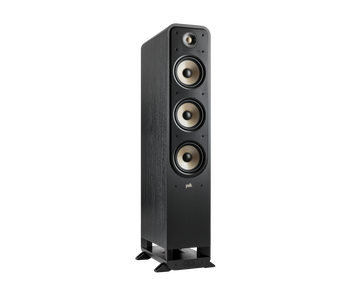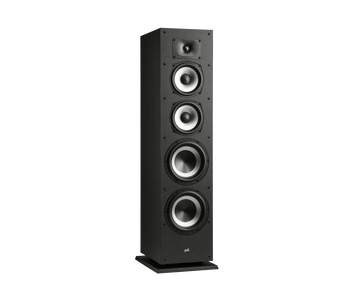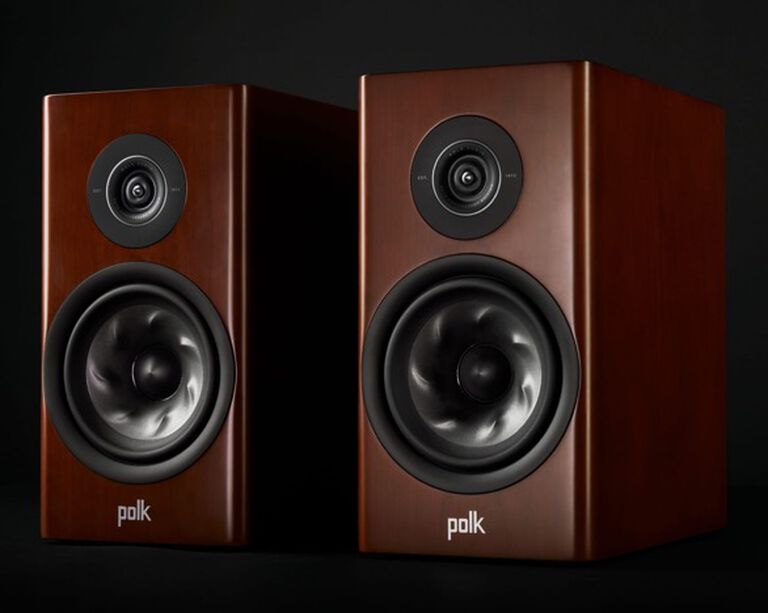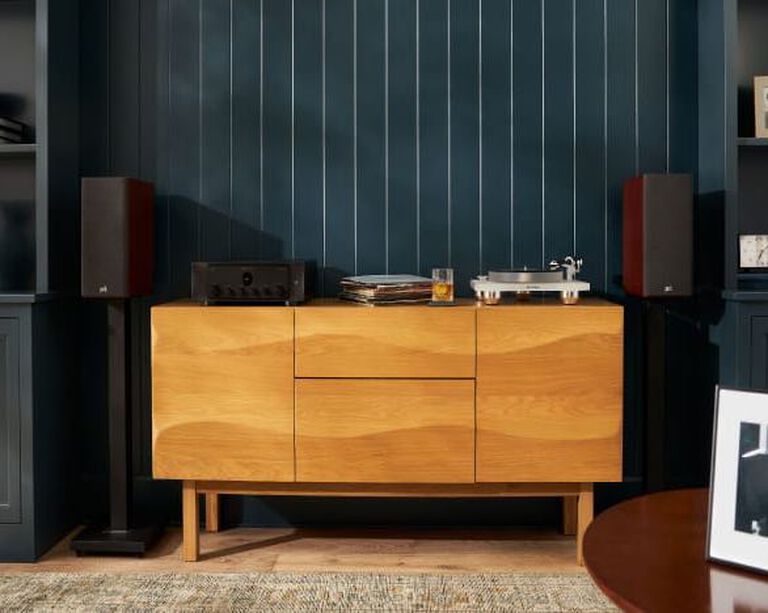Speaker Grilles: On or Off?
Article written by SARAH JONES
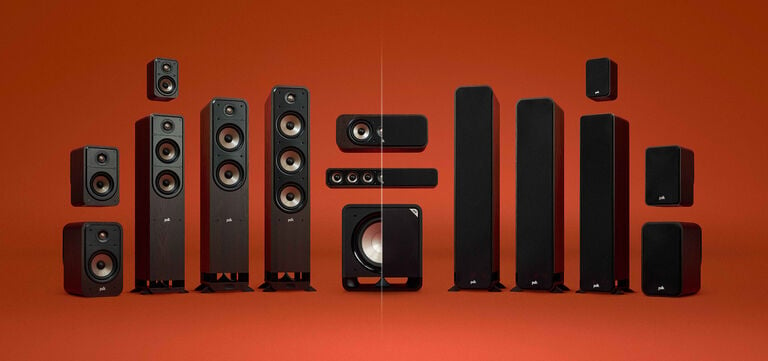
Polk speakers are designed to sound amazing with or without grilles.
Deciding whether to leave speaker grilles on or off is a topic that sparks intense debate among hi-fi enthusiasts. Polk speakers are engineered to sound equally amazing with or without grilles, so you can feel confident in whichever choice you make. Not sure whether you’re Team On or Team Off? We'll explain how grilles work, so you can make an informed decision based on your preferences.
What’s the point of a loudspeaker grille?
Loudspeaker grilles serve dual purposes: protection and aesthetics. They safeguard delicate components against damage from dust and prying little fingers (and paws) while contributing to the overall appearance of the speakers.
Grilles are typically made from materials like fabric, metal, or plastic, and are usually removable, attaching with magnets or clips.
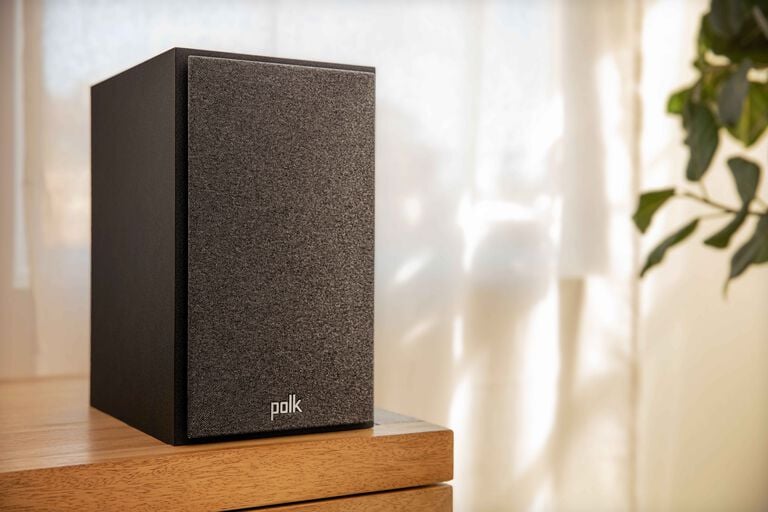
The clean look of a Polk Monitor XT15 speaker with its grille on.
Do loudspeaker grilles affect sound?
It’s hard to provide a definitive answer to this question since every speaker has a unique design. Grille fabric is designed to be acoustically transparent. Arguments can be made for grille fabric attenuating sound at the extreme upper limits of a speaker’s frequency response, but that effect is generally negligible and you likely wouldn’t notice the difference.
If a speaker grille affects the sound of your speakers, its frame is usually the culprit. If the frame borders are too close to the speaker drivers (particularly the drivers producing higher frequencies, such as tweeters and midrange drivers) it can cause diffraction, in which sound waves bounce off the frame, interfering with the sound coming directly from the driver. In speakers with poorly-designed frames, this phenomenon can potentially cause changes in dispersion patterns, along with audible coloration. (We’ve got you covered at Polk with low-profile grille frames that do not compromise sound.)
Note that any acoustic issues caused by frame diffraction are much less significant than the diffraction created when placing a speaker in a cubby hole or other tight or recessed space, so speaker placement is almost always a more important consideration than the question of leaving your grilles on or off.
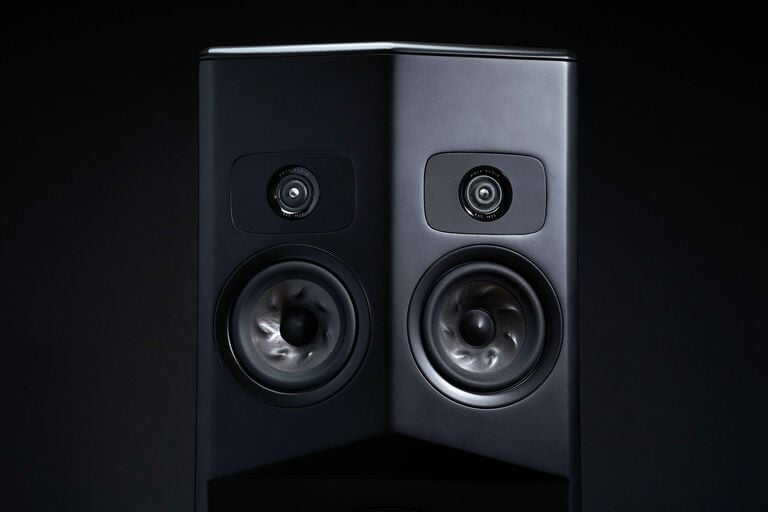
Polk Legend L800 with its grille off...just look at that tech!
The choice is yours
The decision to leave home speaker grilles on or off is subjective. Ultimately, the choice depends on your personal preferences and the specific characteristics of your listening space.
Grilles offer protection, preserve design integrity, and ensure safety. (If your speakers are within reach of pets or small children and you want to avoid scratches, dents, and poked-in cones, your decision is a no-brainer: Grilles on.) On the other hand, removing grilles can enhance aesthetics and in some cases, improve sound quality and dispersion. If you’re not sure whether grilles impact the sound of your speakers, you can always try a blind test (get someone to help you) and decide for yourself. A Polk Legend L800 owner reported that he opts for a hybrid approach: he leaves the grilles on for everyday protection, but takes them off to impress his friends with the L800’s Stereo Dimensional Array of Turbine Cone woofers and Pinnacle Ring Radiator tweeters.
By considering your personal situation and doing some experimenting, you can make an informed decision that suits your priorities and you’ll have a great listening experience while preserving the integrity of your speakers.

